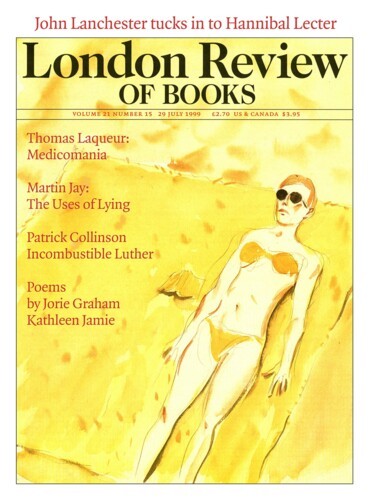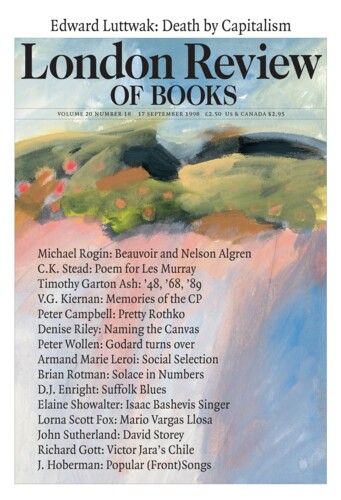Pychoanalysis, says John Kerr, is ‘in a period of institutional decline’: ‘Candidacies are down, patients are harder to come by’ and other therapeutic disciplines are clamouring for attention. The seeds of this sorry situation were sown during the six-year partnership between Freud and Jung, when ‘historical accuracy first came to be less important than ideological correctness.’ (Later it is the termination of the partnership that is held responsible.) Kerr’s book is written ‘in the hope that it will significantly improve the prospects for psychoanalysis, now murkily hopeful at best’. A pious hope, but a misguided one. What chance does this archaic blend of science and art have at a time when anything goes, when every detail of sexual behaviour is laid bare? Psychoanalysis did a lot to make sex fashionable, turning Lawrence’s ‘dirty little secret’ into grand opera; and now sex is growing tedious. A strong dose, if not of repression then of reticence, seems to be in order.
A Most Dangerous Method: The Story of Jung, Freud and Sabina Spielrein by John Kerr. Psychoanalysis did a lot to make sex fashionable, turning Lawrence’s ‘dirty little secret’ into grand opera; and now sex is growing tedious. A strong dose, if not of repression then of reticence, seems to be in order.





